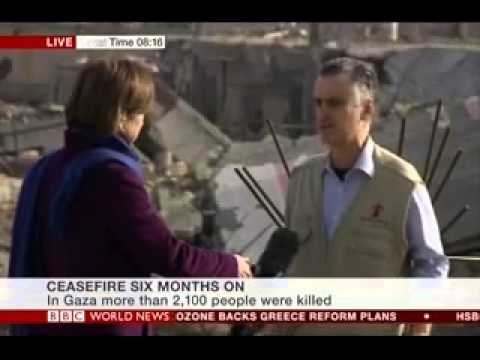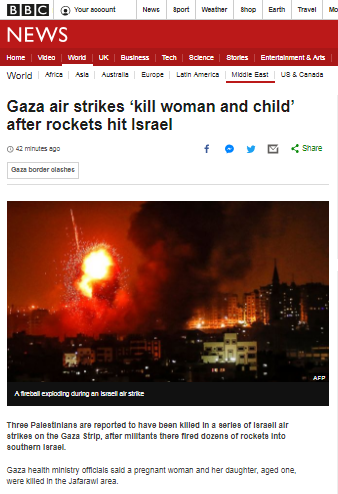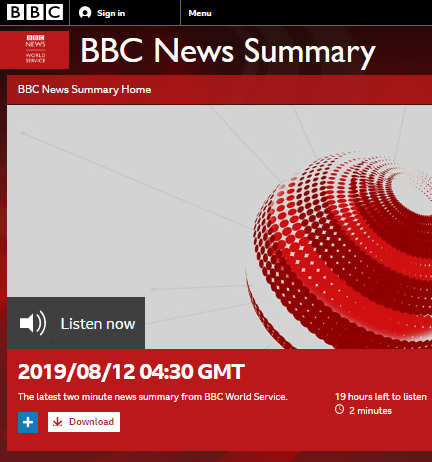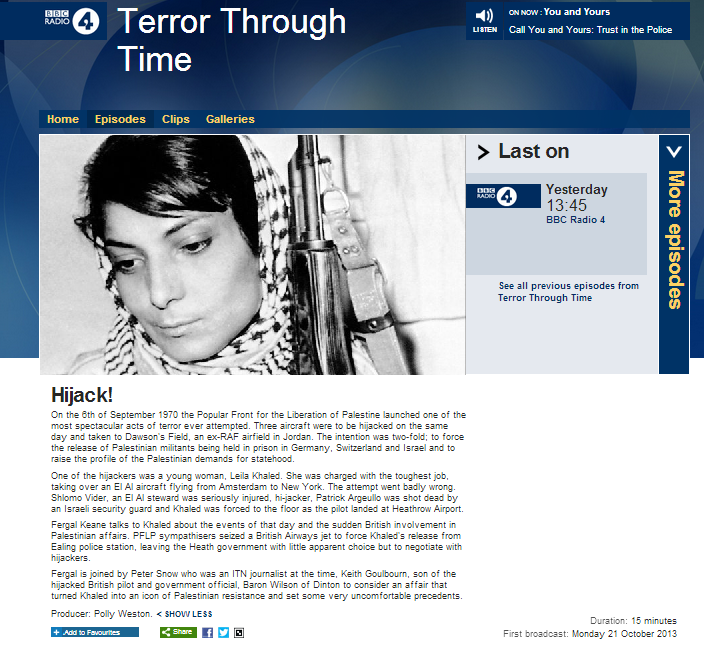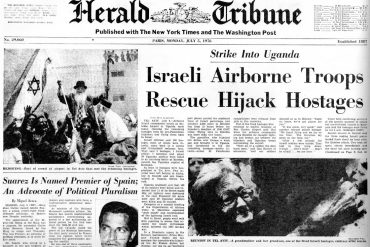As we noted in our discussion here of the plethora of reports recently produced by the BBC’s chief international correspondent Lyse Doucet on the topic of reconstruction in the Gaza Strip (see related articles below), UNRWA employees were given platforms from which to promote their political campaign against Israel’s policies regarding its border with the Gaza Strip in many of those items, as well as in an additional related programme.
But UNRWA was not the only organisation to be given BBC airtime for the promotion of politically motivated messaging in Doucet’s series of reports. The video below shows a report aired on BBC World News in February in which Doucet interviewed Roger Hearn of Save the Children. Note his answer to Doucet’s request to identify “the main problem” holding up reconstruction in the Gaza Strip.
Hearn: “Look, fundamentally people can’t get the equipment and the building supplies to rebuild Gaza. Its…it’s the blockade – the Israeli blockade on Gaza that’s preventing us from moving forward. We can apply a band-aid as aid organisations but it’s a band-aid on a gaping wound and we will expect another war if we don’t actually start rebuilding soon.” [emphasis added]
Hearn was also featured in an audio report by Doucet (from 35:10 here) which was broadcast on the BBC World Service radio programme ‘Newshour’ on February 25th. There he expanded on the above theme:
Doucet: “And what do you think has to happen if this is going to change? It seems there are so many reasons why it’s [reconstruction] failing.
Hearn: “Clearly the blockade – the Israeli blockade on Gaza – has to be lifted. Without that no amount of money can ever fix the damage that we’re seeing here in Gaza.”
Doucet: “But the border with Egypt is also closed: it’s a double whammy.”
Hearn: “It’s a double whammy but Israel has the legal responsibility to – actually as the occupying power – to…to lift the blockade. There’s a humanitarian imperative for Egypt but the clear responsibility lies with Israel.”
Doucet made no attempt to relieve BBC audiences of the erroneous impression given by Hearn that the Gaza Strip is still occupied by Israel almost a decade after all soldiers and civilians were removed from that area – or even to inform them that any other view of the issue exists. Hearn (who in the past has also worked for UNRWA and Oxfam, among others) has no discernible training in international law which could form a basis for his claims. Someone who does have the relevant qualifications is Professor Euguene Kontorovich and as he explained in a two-part essay (here and here) written in November 2014:
“An occupation is traditionally defined as a power exercising “effective control” over the territory in a way that displaces the prior government. The occupying power is expected to provide law and order, essential services, and all the basic functions of government – and is thus required to have the kind of control that allows for that. As the ICJ has put it, occupation requires a territory to be “actually placed under the authority of the hostile army.” There has never been a finding of a such “remote” occupation, lasting nine years after the end of physical occupation and in the presence of a distinct and hostile local government.”
And of course even Hamas has stated that the Gaza Strip is no longer ‘occupied’.
Likewise, Doucet makes no attempt in either of these interviews to explain to audiences why Israel finds it necessary to restrict the entry of dual-use goods to the Gaza Strip (and those alone) which can be used for the purposes of terrorism against its civilian population. Hamas terrorism gets no mention at all and BBC audiences are herded towards the inaccurate belief that responsibility for “the main problem” holding up the reconstruction of buildings in the Gaza Strip lies exclusively with Israel.
As we have seen so many times before, the motivation for Doucet’s uncritical amplification of Roger Hearn’s inaccurate and misleading claims obviously lies both in a shared political view and in the BBC’s failure to treat NGOs with the same sort of journalistic standards it applies to other sectors. Hence, once again the BBC’s obligation to enhance its audiences’ understanding of international issues by means of accurate and impartial reporting is trumped by the opportunity to promote a political agenda.
The BBC self-conscripted to amplification of the campaign promoted by Hamas and assorted NGOs and ‘humanitarian’ groups against Israeli policies concerning its border with the Gaza Strip even as last summer’s conflict still raged. As we see, the exploitation of its unrivalled outreach for that purpose continues.
Related Articles:
BBC’s Lyse Doucet does ‘reporter in the rubble’ redux – part one
BBC’s Lyse Doucet does ‘reporter in the rubble’ redux – part two
BBC’s Lyse Doucet does ‘reporter in the rubble’ redux – part three
Lyse Doucet’s blatant political propaganda on BBC WS WHYS – part one
Lyse Doucet’s blatant political propaganda on BBC WS WHYS – part two
Examining Lyse Doucet’s claim that she reported new Hamas tunnels on BBC
BBC World Service amplifies UNRWA’s political campaigning yet again

